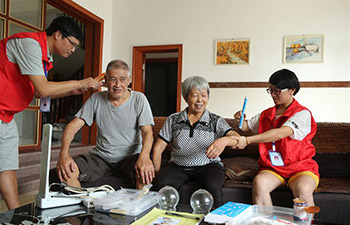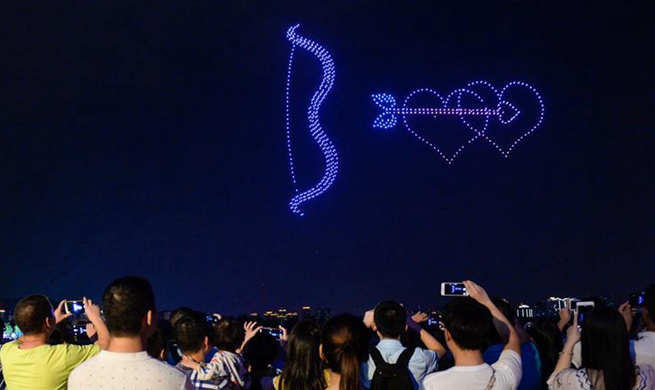WASHINGTON, Aug. 17 (Xinhua) -- The United States Food and Drug Administration (FDA) permitted on Friday the marketing of transcranial magnetic stimulation (TMS), a procedure that uses magnetic fields to stimulate nerve cells in the brain, for treatment of obsessive compulsive disorder (OCD).
OCD is a common, chronic and long-lasting disorder in which a person has uncontrollable, reoccurring thoughts and behaviors that he or she feels the urge to repeat over and over. It is typically treated with medication, psychotherapy, or a combination of the two.
"Transcranial magnetic stimulation has shown its potential to help patients suffering from depression and headaches," said Carlos Pena, director of the Division of Neurological and Physical Medicine Devices in the FDA's Center for Devices and Radiological Health.
FDA reviewed data from a randomized, multi-center study of 100 patients, among which 49 patients received treatment with the magnetic stimulation device and 51 received treatment with a non-working (sham) device.
The results indicated that 38 percent of patients responded to the treatment, whereas 11 percent of patients responded when using the sham device.
No serious adverse reactions related to the device were reported, according to FDA.
FDA permitted marketing of TMS as a treatment for major depression in 2008 and expanded the use to include TMS for treating pain associated with certain migraine headaches in 2013.













